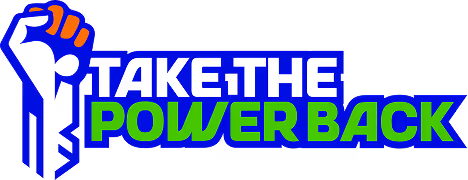Key takeaways:
- Universities filter jobs by policy so you're not seeing the complete market
- Commission, licensing, and startup roles are often hidden from campus boards
- Students miss career-changing opportunities without knowing they exist
- Alternative platforms exist that show unfiltered job opportunities
Why You Don't See Every Job on Handshake or Other Campus Systems?
Universities don't show you the complete job market. They show you an approved subset. Campus job boards like Handshake require institutional approval before any posting goes live. Career centers follow guidelines from organizations like the National Association of Colleges and Employers (NACE), which gives them broad discretion to edit, delay, or refuse postings that don't meet their standards.
Research across multiple universities reveals consistent filtering patterns. Here are few examples:
- The University of Colorado Boulder explicitly states that "commission-based positions are only posted to alumni in Handshake" and blocks them from current students entirely.
- American University's Career Center “does not support full commission-based positions" or any opportunities requiring application fees.
- The University of Washington allows commission roles only if they're "full-time career opportunities, as opposed to internships or part-time roles."
- Miami University goes further, stating that "positions that are solely commission-based will not be promoted by Career Services and will not be posted on Handshake."
- The University of California, Irvine employer recruiting guidelines require commission-based employers to disclose commission compensation and forbid non-refundable training or materials fees; part-time and internship roles may not be 100 percent commission.
The intent might be student protection, but the effect is that your visibility depends on what administrators consider acceptable, not what the actual job market offers.
Universities act as gatekeepers, filtering jobs by internal policies that prioritize institutional reputation over student choice.
What Types of Jobs Are Hidden (With Examples)
Research across university career service policies reveals three categories that consistently get filtered from campus boards, even when the opportunities are legitimate:
Commission-Based or Variable-Pay Sales
Insurance sales, financial advising, business development, and many sales positions get blocked because universities worry about income predictability. Schools like Tufts University explicitly state that commission-only roles are generally not approved, with limited exceptions.
The University of Houston blocks any position that pays “in cash” or involves “recruit[ing] other students for a financial incentive.” Georgia Tech requires commission positions to "fully disclose the compensation structure" and evaluates them "on a case-by-case basis." Multiple universities, including Colorado and Miami, refuse commission-only positions entirely.
These types of policies, that might be well-meaning, have a side effect of blocking legitimate prosperous roles from ambitious students.
Real example: A financial services company that helps students obtain Series 7 licensing and build wealth management practices was blocked from a major university's job board. Not because the opportunity was illegitimate, but because it didn't fit their approval criteria.
What you're missing: Early client exposure, performance-based advancement, and entrepreneurial sales skills that compound over time. Many commission-based roles in financial services, insurance, and technology sales offer faster wealth-building potential than traditional salary positions.
Licensing-Required Roles
Positions requiring Series 7, real estate licenses, or professional certifications often get filtered because they don't fit traditional "graduate and start" timelines. Universities prefer clear job descriptions with predictable paths.
The University of Nevada, Las Vegas Career Services Employer Policies cautions that recruiting for roles requiring candidates to pay for equipment or training is strongly discouraged.
Many schools require extensive disclosure when licensing fees are involved, creating barriers for legitimate employers. American University blocks any position requiring "candidates to pay fees for application processes, training, equipment, or other job-related expenses," which can eliminate valid licensing-path opportunities.
Examples: Financial advisor trainee programs, real estate development roles, consulting positions requiring specific certifications, insurance sales positions with licensing support.
Early-Stage Startup or Equity-Based Roles
Startup positions frequently get blocked because they move too fast for university approval processes, lack standardized job descriptions, or offer equity compensation that's difficult to evaluate.
Universities worry about company stability and prefer employers with established track records. Georgia Tech requires businesses to “verify that they are not seeking potential partners or investors” and “confirm that they have obtained the necessary business licenses” plus “sufficient funding.” This protects students by ensuring legitimacy and funding. It also means some fast, equity-tied opportunities will be harder to find unless you look beyond campus channels.
Many innovative companies simply bypass university systems entirely rather than navigate complex approval requirements, meaning students never see these opportunities.
Examples: Growth roles at Series A companies, product positions at early-stage startups, business development roles with equity upside, founding team member positions.
What you're missing: Real ownership over outcomes, direct access to founders, equity positions that could significantly impact your wealth-building timeline, and accelerated learning in high-growth environments.
Book a founder speaker for your club →
Why Universities Block These Jobs
Universities filter opportunities for three primary reasons, all focused on institutional protection rather than student empowerment:
Reputation Management
Schools worry that variable outcomes (students who struggle in commission roles or startups that fail) reflect poorly on career services success rates. It's easier to promote "safe" positions with predictable outcomes that make placement statistics look consistent.
Universities also want to maintain relationships with established corporate partners who provide reliable recruiting pipelines. Newer companies or non-traditional roles might not fit existing partnership models.
Statistical Reporting
First-year salary statistics look better when they exclude commission-based roles or equity positions that are hard to quantify. Universities prefer clean data over complete opportunity access.
NACE guidelines emphasize standardized reporting metrics, which naturally favor traditional employment structures over innovative compensation models. Career centers optimize for reportable data rather than student outcomes.
Liability Concerns
Career centers avoid anything that could be construed as endorsing "risky" opportunities. This risk-averse approach eliminates legitimate but unconventional paths.
Legal departments often recommend conservative posting policies to avoid potential complaints from students or parents. The safest institutional choice is to exclude anything that might generate controversy.
The problem is clear: these institutional priorities don't align with what students actually want (choice, transparency, and access to the complete market).
What Students Miss When Jobs Are Hidden
When universities filter opportunities, students lose more than just job postings:
Career Acceleration
High-responsibility roles typically offer faster advancement than traditional corporate tracks. Commission-based positions, startup roles, and licensing-path opportunities often provide leadership experience and decision-making authority within months rather than years.
Students who find these opportunities through alternative channels frequently outpace their peers in terms of responsibility, skill development, and earning potential. The filtering system creates an artificial bottleneck that slows career progression.
Entrepreneurial Skill Development
Commission-based and startup roles develop crucial skills: prospecting, experimentation, self-management, and results accountability. These capabilities compound over entire careers and become more valuable in an economy that increasingly rewards entrepreneurial thinking.
Traditional corporate roles often provide structured environments with limited autonomy. Alternative opportunities force students to develop independence, resilience, and creative problem-solving skills that serve them regardless of their ultimate career path.
Wealth-Building Opportunities
Equity positions and performance-based compensation can dramatically accelerate financial outcomes for students willing to take calculated risks with proper preparation. Many of today's wealthiest professionals built their foundation through commission sales, real estate, or early-stage company equity.
The university filter system systematically excludes these wealth-building paths, channeling students toward predictable but limited earning trajectories.
Direct Network Access
Smaller companies and entrepreneurial roles often provide direct access to decision-makers, mentors, and industry connections that would take years to develop in larger organizations.
Students working directly with founders, successful sales professionals, or industry veterans build powerful networks faster than those in large corporate hierarchies. These relationships often prove more valuable than the specific roles themselves.
How to Access Hidden Opportunities
Seeing the complete market requires going beyond campus systems and developing your own discovery process:
Direct Company Research
Target 10-15 companies weekly that align with your interests and skills. Check their careers pages directly, follow founders and hiring managers on LinkedIn, and subscribe to investor updates from accelerators and venture firms in your target industries.
Create a systematic approach: Monday for fintech companies, Tuesday for SaaS startups, Wednesday for consulting firms, and so on. This weekly cadence ensures you discover opportunities before they reach (or get filtered by) campus systems. Take charge of your career with disciplined cadence.
Network Through Professional Channels
Connect directly with hiring managers and founders rather than waiting for formal job postings. Send concise messages with specific value propositions and clear requests for brief conversations.
Example outreach template: "Hi [Name], I've been following [company milestone or recent news]. I can contribute [specific skill or value] to help with [specific company need or challenge]. Could we schedule a 10-minute call to discuss potential opportunities and expectations? I've attached a one-page summary of relevant experience."
Most successful placements in high-growth companies come through direct networking rather than formal application processes.
Leverage Student Organizations
Club events create natural networking opportunities that can convert into job opportunities. When booking speakers for events, prioritize those who are actively hiring and create structured follow-up processes to convert connections into opportunities.
After every speaker event, collect contact information from attendees interested in specific opportunities, share qualified resumes (with permission) within 24 hours, and follow up to track outcomes. This systematic approach turns networking events into recruitment pipelines.
Use Platforms That Don't Filter
Platforms like Take the Power Back list opportunities without institutional gatekeepers, giving you access to the complete market rather than just the approved subset. These platforms prioritize transparency and student choice over institutional comfort.
Look for job boards and networking platforms that explicitly welcome non-traditional opportunities, commission-based roles, and startup positions. The lack of filtering means more work to evaluate opportunities but also access to paths that could transform your trajectory.
Vetting What You Find
More access requires better evaluation skills. Since you're seeing unfiltered opportunities, you need systematic ways to separate legitimate options from problematic ones:
Demand Transparency
Before proceeding with any opportunity, request details about:
- Compensation structure (base, variable, equity components)
- Training and mentorship programs
- 30/60/90-day expectations and success metrics
- Examples of recent new graduates who succeeded in similar roles
Companies that hesitate to provide this information or give vague responses should raise immediate red flags. Legitimate opportunities welcome scrutiny and provide detailed information.
Verify Claims
Ask for specific examples and references: "Can you share two recent examples of new graduates who succeeded in this role, what they accomplished in their first 90 days, where they are now, and contact information so I can speak with them directly?"
Request to speak with current employees in similar roles, particularly those who joined within the past two years. Their experiences will give you realistic expectations about challenges, support systems, and actual outcomes.
Trust Your Instincts
If any element feels unclear, evasive, or too good to be true, ask directly for clarification. Legitimate opportunities welcome scrutiny. Red flags include vague answers, pressure to commit quickly, reluctance to provide references, or unwillingness to put commitments in writing.
Pay attention to the quality of people you meet during the process. Are they professional, knowledgeable, and genuinely interested in your success? The caliber of team members often indicates the quality of the opportunity itself.
Take Control of Your Career Search
Your university's job board shows you what administrators approve, not all what the market offers. This filtering system prioritizes institutional comfort over student choice, leaving you with an incomplete picture of your actual options.
The career services model assumes students need protection from complexity and risk. In reality, you need access to complete information so you can make informed decisions about your own future. Filtering reduces choice under the guise of providing guidance.
Take the Power Back exists to change this dynamic. We show you the complete market (commission roles, licensing opportunities, startup positions, and everything else) without gatekeepers deciding what you should see. You get transparency, complete access, and the ability to make informed decisions about your own career path.
Our platform connects you directly with employers who value student potential over institutional approval. Whether you're interested in commission-based sales, startup equity positions, licensing-path opportunities, or traditional roles, you see everything and choose what fits your goals and risk tolerance.
Because you deserve to see every opportunity and choose your own direction based on complete information, not filtered recommendations designed to protect institutional statistics.
Students control their destiny. Not institutions.
Browse jobs without gatekeepers →
Common Questions About Hidden Student Jobs
What kinds of jobs do universities block from job boards?
Universities often block commission-based sales roles, positions requiring professional licensing, early-stage startup opportunities, and any roles requiring upfront investment from students. These jobs get filtered because they don't fit traditional approval criteria, even when they're legitimate opportunities with strong earning potential.
Why don't students know these jobs exist?
Because career services acts as a gatekeeper, filtering jobs before students see them. Universities show you an approved subset of the market, not the complete picture, so entire categories of opportunities remain invisible. The filtering happens at the institutional level, not based on your individual preferences or qualifications.
Are commission-based or licensing jobs worth considering as a student?
Yes, when properly vetted. These roles often offer accelerated skill development, entrepreneurial experience, and faster advancement than traditional positions. The key is demanding transparency about compensation structure, training programs, and recent graduate outcomes before making any commitments.
How does TTPB differ from Handshake?
While Handshake shows you what universities approve, TTPB shows you what the market actually offers, giving you complete visibility to make informed choices. We don't filter opportunities based on institutional preferences. Instead, we provide transparency tools and vetting guidance so you can evaluate options yourself.
How can I start finding hidden jobs today?
Start by researching companies directly instead of relying only on campus boards. Check company career pages, connect with hiring managers on LinkedIn, and use platforms like TTPB that don't filter opportunities. Build a weekly routine of direct outreach and networking rather than waiting for opportunities to appear on filtered boards.
















.avif)